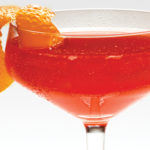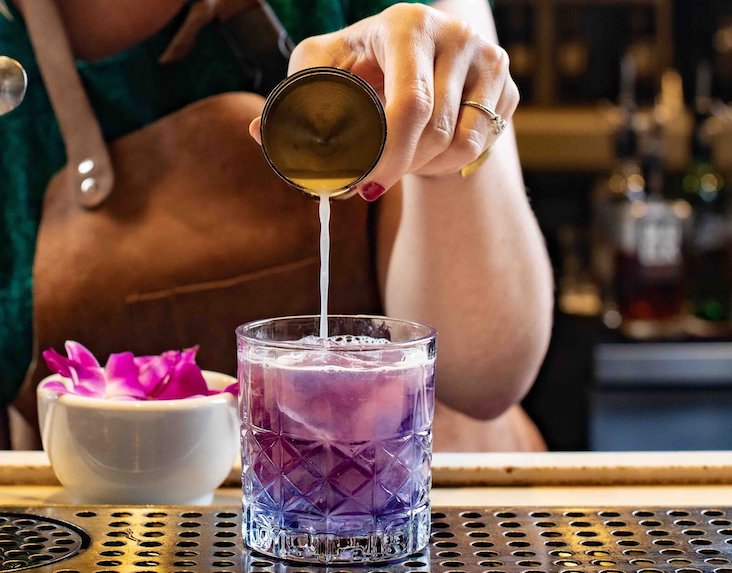Reports of vodka’s demise are greatly exaggerated. Yes, the white spirit has lost some ground during the rise of brown spirits and craft cocktails. For a time there it seemed like modern drink recipes had forgotten about vodka, favoring trendier or more-obscure alcohol bases.
But vodka is inching back. The spirit is reclaiming its role as a cocktail staple while also looking to tap into the expanding premium market. To this end, I recently spoke with Brent Lamberti (pictured above), Global Brand Ambassador of elit by Stoli, a premium vodka that retails for $50-$60 per 750-ml. bottle.
CH: Where does vodka fit into the classic cocktail renaissance?
BL: What we’re seeing now is ‘back to basics’. The best cocktails across the board have only three-to-four ingredients. These aren’t complex drinks. And that plays well into vodka. The spirit has stood the test of time for a reason. It’s really good in cocktails. That’s what we’re trying to promote with elit. If you want to make a classic cocktail, you can keep it simple by keeping vodka at the forefront.
You’re still going to have bars without vodka in a single cocktail. But there are still a large percentage of people who are vodka fans. I don’t think you should start off the evening by telling someone that they cannot drink what they’re looking for. And it’s disrespectful to people of Eastern Europe not to include their national spirit. They put a lot of pride into their products.
CH: Why don’t we see more sipping vodkas?
BL: Ever since vodka first came to this country it’s always been about cocktails. Your Bloody Maries, Moscow Mules, etcetera. That’s how Americans were taught to drink vodka.
When single malts came to this country we were taught to revere the spirit. You can’t mess with it. You should only drink it straight. Vodka was never talked about in that light. But if single malts first came out and everyone was told to mix them with tomato juice, we’d all drink them that way. Consumers are swayed by whatever marketing comes out.
When vodka first appeared in America, nobody knew what to do with it. Then people started mixing it with ginger beer. They showed the consumer that and it worked. Vodka has always been seen as a vehicle alcohol, something to be used for making cocktails.
And there is still that backlash against vodka. People who only saw it as a vehicle alcohol for cocktails got bored of it. Which is kind of an overly simplistic view of vodka. And they say that were too many flavored vodkas. But look at the rise of brown spirits. What are they doing now? Everyone’s released flavored brown spirits. It’s all cyclical.
 CH: What constitutes premium vodka?
CH: What constitutes premium vodka?
BL: Vodka is probably the easiest spirit to make. You don’t have to age anything. You’re not buying and using botanicals. So what’s most important is the raw ingredient, the grain. How the distiller tackles it. Where they get it. Whether the distiller owns and operates the facility where the grain is grown, like we do. Whether you can control the vodka from grain to glass, like we do. The more control you have, the better the product.
Premium vodka doesn’t cut any corners during production. It’s very easy to cut slight heads and tails of your product, mix in sugar, and call it premium. We’ve all tasted those. They’re a little harsh, and cannot be considered premium. I always say that anything premium should be effortlessly drinkable.
We think of elit as ‘luxury’ vodka. We get our grain from a single farm in Tambov, Russia. It’s like a single-vineyard wine. elit is three-times distilled. And we run the vodka through carbon chambers that chill the vodka to -18°. This is based on ancient Russian traditions of leaving vodka casks outside in freezing temperatures, which helps reduce impurities. We only produce elit twice per year.
I think of elit as being the merge between Old and New World vodka. New World being American-made vodka, which is neutral and light, and Old World being those Eastern European vodkas that are robust, spicy, peppery. This is a step up from Stoli Premium, a more elevated experience.
Kyle Swartz is the associate editor of Cheers Magazine. Reach him at kswartz@epgmediallc.com and follow him on Twitter at @kswartzz.







